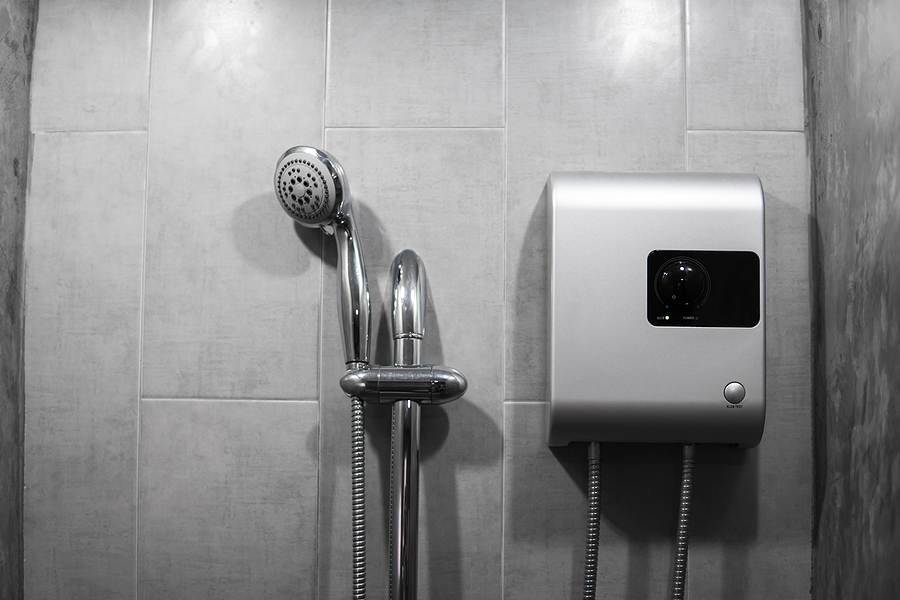When the Ohio winter sets in, few things are more frustrating than a water heater that can’t keep up. Frozen pipes, long waits for hot water, and rising utility bills are common headaches for homeowners. That’s why many are considering tankless water heaters—systems that heat water on demand and promise better efficiency, comfort, and reliability. But before you install a tankless water heater, it’s important to understand the true costs involved.
Upfront Costs of Tankless Water Heater Installation
The first thing most homeowners want to know is: what do tankless water heaters cost? Unlike traditional tank water heaters, tankless units typically require a higher upfront investment, often ranging from the cost of the unit itself to installation expenses. However, these systems are designed with a longer lifespan and provide greater efficiency, which means you’ll see benefits for years to come. While the initial price may be steeper, the long-term savings on energy bills and reduced maintenance often make tankless units a smarter investment.
- Unit Price
- Electric tankless water heater: $500–$1,500 depending on size and flow rate.
- Gas model: $1,000–$3,000, with higher BTU capacity for larger homes.
- Installation Costs
- Labor for tankless water heater installation often ranges from $1,000–$3,000, depending on your home’s setup.
- Extra costs may include upgrading gas lines, rerouting plumbing, or adding electrical circuits for electric models.
- Total Upfront Investment
Most homeowners in Ohio should expect to spend $2,000–$5,500 for purchase and installation combined. While this is higher than standard water heaters, tankless units can deliver significant value over time.
Long-Term Savings and Value

Although upfront costs may seem steep, tankless water heaters are built to last much longer than traditional models. On average, they can provide reliable service for 20 years or more, while standard tank water heaters typically only last 8 to 12 years. This extended lifespan means homeowners won’t need to replace their system as frequently, saving money over time. In addition, the durability of tankless units makes them a valuable long-term investment for any household.
Here’s how you can expect them to pay off:
- Energy Savings
Tankless systems heat water on demand instead of maintaining a full tank of hot water. This means less wasted energy and reduced utility bills—savings of up to 25–40% annually. - Home Improvements
A tankless water heater is a valuable upgrade that boosts resale appeal and provides a more energy efficient option for buyers looking for modern home systems. - Reduced Risk in Winter
In Ohio, where frozen pipes and overworked tank heaters are a hazard, tankless units reduce the risk of burst tanks and provide consistent hot water—even during heavy winter use.
Buyer’s Review: What Real Homeowners Experience
Most Ohio homeowners who make the switch to tankless water heaters report:
- Faster Hot Water Delivery: No more running out of hot water when multiple showers run back-to-back.
- Compact Design: Tankless units free up basement or utility room space.
- Peace of Mind in Winter: Systems handle demand spikes without the hazards of a traditional tank water heater cracking under freezing conditions.
- Upfront Costs vs. Payback: While the upfront costs are higher, many feel the energy savings and convenience quickly balance out the investment.
Electric vs. Gas Tankless Models
When deciding between tankless water heaters, homeowners often compare electric models with gas models to see which best fits their needs. Electric tankless units generally have lower upfront costs and are ideal for smaller homes or moderate hot water demand. Gas models, on the other hand, are more expensive to purchase and install but provide higher flow rates and stronger performance for larger households. The choice often comes down to balancing installation costs, available utilities, and the long-term efficiency homeowners are looking for.
- Electric Tankless Water Heater
- Lower upfront costs.
- Best for smaller homes or households with moderate flow rate needs.
- May require significant electrical upgrades.
- Gas Model
- Higher purchase and installation costs.
- Stronger performance for larger homes.
- Requires proper venting and potentially new gas lines.
Tankless water heaters are not the cheapest home improvements, but they offer long-term value, better performance, and peace of mind—especially in cold Ohio winters when water heater failure can become an emergency. If you’re tired of unpredictable hot water and high energy bills, installing a tankless unit could be one of the smartest moves before temperatures drop.
Massie Creek Plumbing can help you determine the best tankless system for your home, whether you’re considering an electric tankless water heater or a gas model. With expert tankless water heater installation, you’ll be prepared for whatever winter brings—without worrying about cold showers or costly breakdowns.
